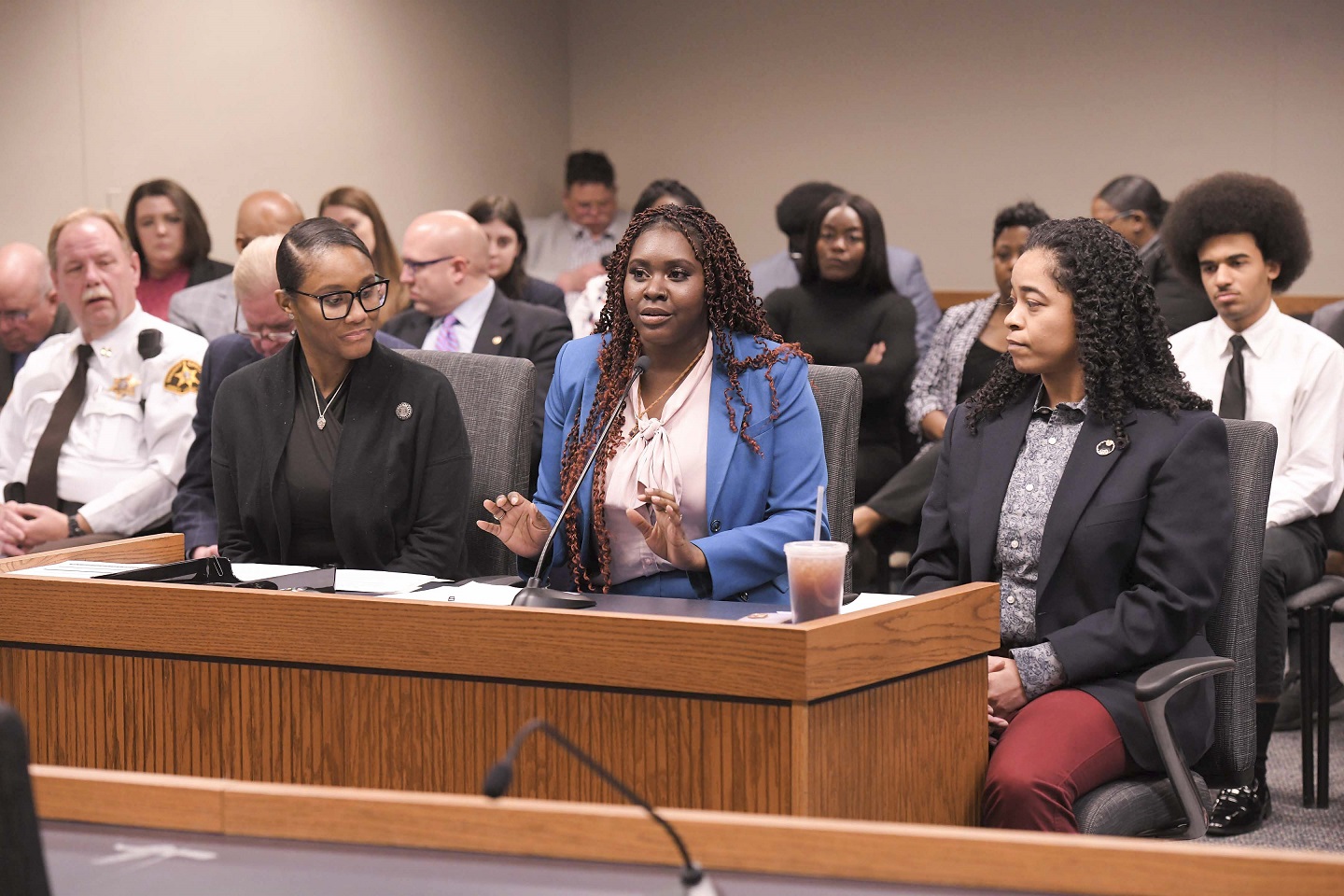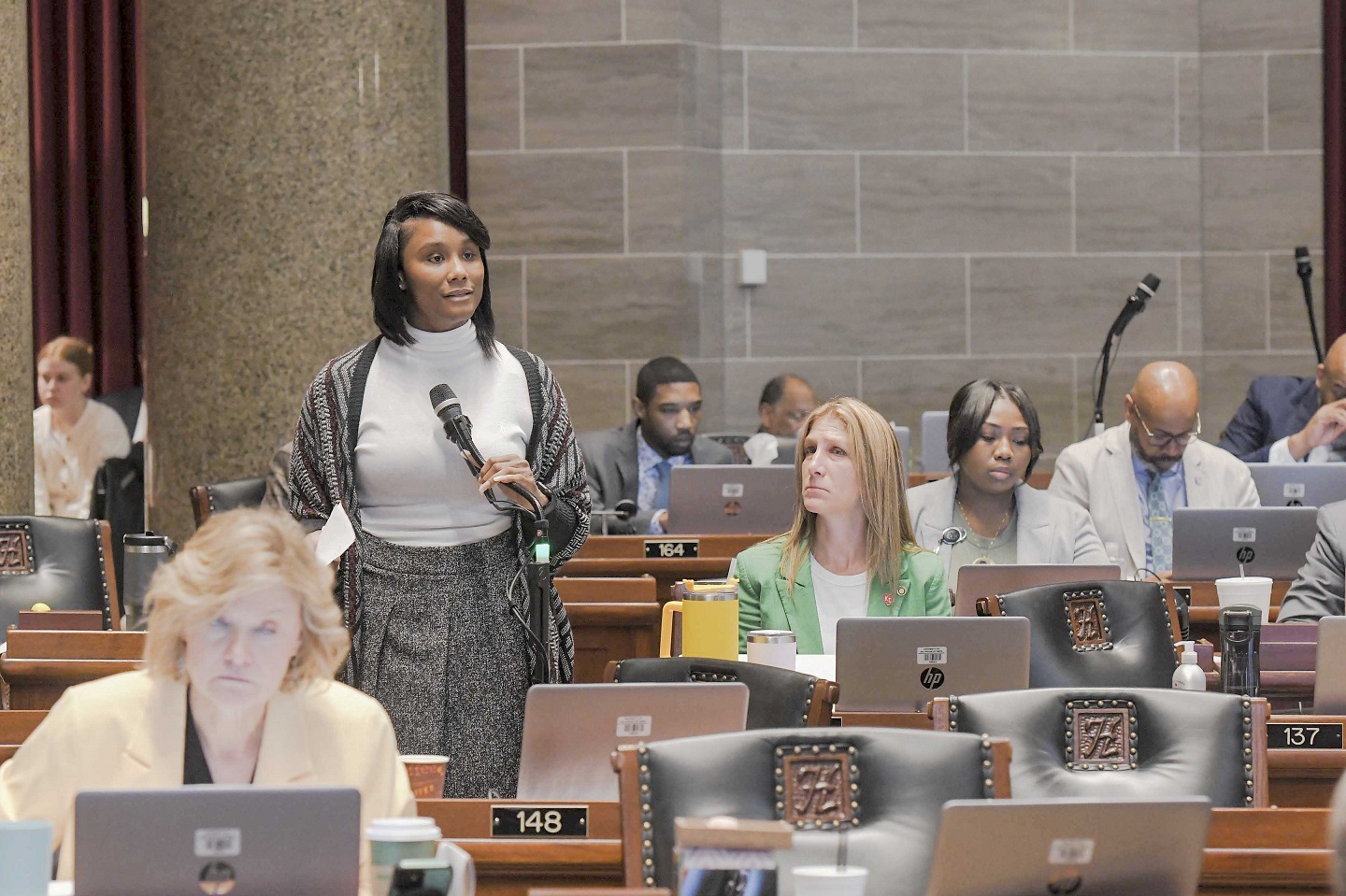The House has voted to bar discrimination based on how people style their hair, specifically natural hair textures and cultural styles.

For several years now, legislators have been asked to pass the “Missouri Creating a Respectful and Open World for Natural Hair,” or “Missouri CROWN Act.” House Bills 1900, 1591, & 2515 would specify that no person may be discriminated against based on hair texture or protective hairstyle if that style or texture is commonly associated with a particular race or origin. The measure applies to any educational institution that receives state funding.
It was carried on the House Floor by Representative Raychel Proudie (D-Ferguson), whose bill was combined with those from Representatives LaKeySha Bosley (D-St. Louis City) and Ashley Bland Manlove (D-Kansas City).
“Every freedom- and liberty-loving patriot in Missouri should be in favor of this bill, especially those of us who believe that children should be able to exist the way in which God created them,” Proudie said. “Simply put, that’s what this does. Any constitutional, tax-paying citizen of Missouri should agree to this bill because all students and their parents should have access to the things which their tax dollars go to sustain.”
Proudie is a teacher as well as a school counselor certified in three states. “Students can’t learn when they’re not in class learning. As a teacher, I can say, and have said, we must be much more interested in what we are putting in a student’s head than what’s going out of it. If we’re distracted by someone’s hair, then maybe that’s something we need to take up with a physician, but it’s not the child’s problem,” Proudie told her colleagues.
Each year that the legislation has been considered, legislators have heard testimony, especially from people of color, who said they have faced discrimination based on their hairstyles. Again this year, Missourians told the House Committee on Urban Issues that their hairstyles have been politicized; they have been discriminated against in job interviews and classrooms; and they have been made to feel like they cannot style their hair how they choose.
The proposal has evolved over the years. The version passed on Wednesday by the House includes exceptions for the use of things like hairnets or coverings for safety purposes. This was a change pursued by Representative Scott Cupps (R-Shell Knob), whose background includes time as an agricultural education teacher.
He says in that curriculum, in particular, students need protection.
He said changes like that could very well lead other states to mirror versions of this legislation off of this.
More bipartisan support came from Imperial Republican Renee Reuter, who said, “I do have naturally curly hair, and I promised people in my district before I came back from the interim that I was going to represent the curly-haired girls when I was here, and I’m so proud that this bill is here and I support it.”
Echoing Proudie, Reuter added, “Women and men need to be able to just be who they are and express their hair the way that they are given it from God.”
The House voted 144-0 to send the legislation to the Senate, where a similar bill was recently passed out of a committee.
